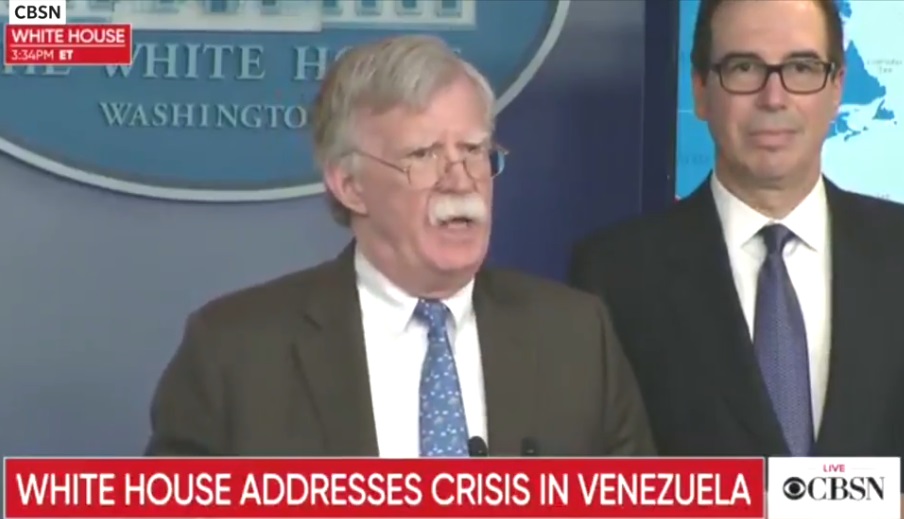On Monday, the White House announced new sanctions against Venezuela. The warning from the United States will immediately block more than $7 billion in assets held offshore by Nicolas Maduro and his top officials. On Monday, the U.S Treasury Secretary Steven Mnuchin and National Security Adviser John Bolton joined White House Press Secretary Sarah Huckabee Sanders during a press conference to announce the new sanctions. The White House warned all options are on the table and it will come to dealing with the ongoing conflict in Venezuela.
The sanctions target state-owned oil monopoly of Venezuela with the US’ goal being the seizure and diverting of Maduro’s wealth assets to Juan Guaido, the opposition leader who Donald Trump and other world leaders have thrown their support behind. Last week, Guaido invoked powers within the Constitution and declared himself the interim president of Venezuela as the head of the country’s elected Congress. Bolton informed reporters at a briefing on Monday, “We have continued to expose the corruption of Maduro and his cronies and today’s action ensures they can no longer loot the assets of the Venezuelan people”.
The sanctions will freeze on any assets the firm may have in U.S jurisdictions and bar Americans from doing business with it. On Monday, Mnuchin said, “The United States is holding accountable those responsible for Venezuela’s tragic decline, and will continue to use the full suite of its diplomatic and economic tools to support Interim President Juan Guaido, the National Assembly, and the Venezuelan people’s efforts to restore their democracy”.
Mnuchin added, “Today’s designation of PDVSA will help prevent further diverting of Venezuela’s assets by Maduro and preserve these assets for the people of Venezuela. The path to sanctions relief for PDVSA is through the expeditious transfer of control to the Interim President or a subsequent, democratically elected government”.
The Venezuelan oil exports to the U.S have declined steadily over the years, falling particularly sharply over the past decade as its production plummeted amid its long economic and political crisis. Venezuela is still the 3rd or 4th largest supplier of crude oil to the United States. So, any disruption of imports could be costly for refiners. The country spends 41% of its oil exports to the U.S and refiners in the United States are among the few customers that pay cash to Venezuela for its oil.
